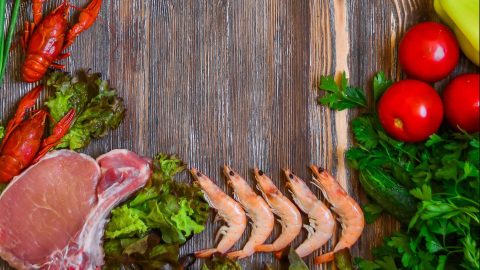Want to help animals? You might have to eat a few more

Pixabay/Pexels
- Many philosophers agree that animal suffering should be avoided and suggest vegetarian or vegan diets.
- However, a new essay reminds us that growing crops can harm animals too, and this should factor into our calculus.
- Using virtue ethics, the author provides a way of deciding what is the "best" diet.
When people examine the philosophy of food, they’re likely to come across more than a few arguments in favor of completely ditching meat and animal products in the name of morality. Arguments for vegetarianism based on animal rights, the often appalling condition of factory farms, or even the carbon footprint of agricultural production abound. Many of these are well reasoned and have convinced many people.
However, a new paper published in the Journal of Agricultural and Environmental Ethics argues that one can be an ethical omnivore, though the meats in question and how you might acquire them are a little different than what you are used to.
Virtue ethics reviewed
The paper’s author, Professor Christopher Bobier of St. Mary’s University of Minnesota, makes his case using virtue ethics. (Here’s a primer on the topic.) Virtue ethics is the idea that virtues (positive character traits) should be acted upon. A compassionate person is motivated to act compassionately and does so, for example. A virtuous life is a life well lived.
The professor argues that compassion, justice, and temperance are all traits that a person should strive for — and that all of them factor into deciding what’s on our plate. A virtuous person should try to have a diet that doesn’t promote suffering, should switch to foods they know are better in this regard, and shouldn’t eat too much or for pleasure alone or eat things that are bad for them to excess.
At first glance, this might not seem to mean much. If Peter Singer can argue that eating meat is bad using utilitarianism, it seems like it should be easy to prove that a person living according to virtue ethics would avoid meat too. Several philosophers have made that argument. However, Prof. Bobier argues that a number of considerations should make any virtuous person at least contemplate some meat eating.
Virtuous omnivores
Prof. Bobier argues that, while he agrees that a virtuous person would care about animal suffering and would clearly oppose things like factory farming, the real world is complex. Sometimes even the most careful actions can lead to unintended harm.
For example, animals are often hurt or killed through crop agriculture. Pesticides used to grow crops intentionally kill insects, land clearance deprives many animals of their habitats, and accidents with farming equipment hitting animals happen all the time. One author even suggests that the number of insects needed to sustain a person is lower than the number of insects that would be killed to feed that person with a purely plant based diet.
If these facts are true and the virtuous person is concerned about animal suffering, the compassionate thing to do would be to at least occasionally eat certain animals and thereby keep more of them alive. Creatures without complex nervous systems, like insects and oysters, would be acceptable for the virtuous person to consume. (It’s not clear if these animals can feel pain.)
In other cases, there are meats that can be acquired in ways that do not promote future harm to animals. Two examples of this are roadkill and eating meat which is slated to be disposed of- like something with a rapidly approaching use by date. While some suffering went into the process — accidentally in the first case — the consumption of them at that point does not increase the demand for these meats.
Ironically, the virtuous person who wants to reduce animal suffering may need to eat some animals as a way to reduce overall suffering. In this way, an omnivorous diet may be more virtuous than a vegetarian or vegan one.
Does a virtuous person really need to eat bugs and oysters?
If the above reasoning has left you convinced that you should care a little more about what you eat but not quite ready to consider switching purely to non-sentient food sources, Prof. Bobier reminds you not to feel too bad about yourself. As he explained in an email to BigThink:
“Virtue ethics is about progressing in virtue — in some formulations of VE, no one is virtuous; rather, we all strive to become virtuous. Moral progress is part and parcel of striving to live a good human life.”
It is also important to remember that his article is neither explicitly giving dietary advice nor providing an exhaustive list of foods to eat; it is only offering a new way to look at the philosophy and morality of food. Virtue ethics is flexible, and at no point does it deem eating meat taboo. Some people, like those living in places where alternatives are not available, might even have to eat meat to live a good life.
There are lots of details to consider when deciding what should go on your plate, as the professor explains:
“We tend to look at the food on our plate without thinking about where that food came from and its broader impact. This was certainly my case when I was growing up. Yet what we eat has ramifications for animals (e.g., pain, distress, death), other people (e.g., farm workers), businesses (e.g., small farmers and big agricultural companies), the environment (e.g., deforestation, animal waste), and ourselves (e.g., healthy living).”
We should all reflect about the implications of the food on our plates. Even if you can’t dine like a saint, trying to be a little more virtuous could mean a lot.





